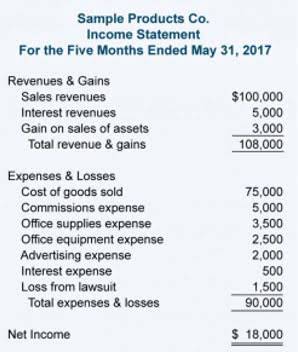What Dentists Should Know Accounting Services for Dentists and Dental Practices

Closing the books includes reconciling the different accounts, preparing the financial statements, and more. After the books have been closed for the period, transactions should not be entered and changes should not be made for that closed period. Profit is the result of revenue less expenses for a certain period of time. Cash flow is the money moving in and out dental bookkeeping of the business from the beginning of the month to the end of the month. Cash flow is computed after completing the cash flow equation and factoring in accounts receivable, inventory, and depreciation expenses. Ideally, you should hire a bookkeeping firm that is comfortable with technology and automation and can use both to provide accurate and speedy services.
How do patients feel about extra screenings? New data might surprise you
Overall, using a cloud-based accounting software can help you streamline your bookkeeping process and ensure accurate financial reporting for your dental practice. In conclusion, dental accounting involves setting up a chart of accounts, tracking revenue and expenses, managing cash flow, and complying with tax laws and regulations. Dentists can effectively manage their practice’s finances and make informed business decisions by understanding accounting basics. It also helps to hire a reliable company that can handle all your accounting and financial matters for you. They offer bookkeeping services and manage taxes so you can focus on running your dental practice without any extra stress.
Consider Outsourcing Your Bookkeeping
You can arrange your chart of accounts to track the areas that pertain to your business model. For example, the payroll for your receptionist would be considered an overhead expense. In contrast, the dentists’ and hygienists’ payroll would be considered to be part of the Cost of Sales. You run the risk of omitting important information without the use of a dentistry-specific chart of accounts. This might affect you further down the line when you transfer those figures to other financial reports. During tax season, having a skilled Certified Public Accountant (CPA) on your team is crucial for safeguarding your investments and ensuring the ongoing success of your dental practice.

Dental Accounting 101: Accounting Basics for Dentists
- And the QuickBooks Online reconcile feature will walk you through reconciling any account on your balance sheet.
- This security has been a big component of our success.” – Mary W. Crockett, DMD, Crockett Pediatric Dentistry, P.A.
- When reviewing your finances, it’s important to look at key performance indicators (KPIs) such as revenue, expenses, and profit margins.
- Apply for financing, track your business cashflow, and more with a single lendio account.
- You can hire someone locally or choose a virtual bookkeeper, granting them remote access to your accounts.
Preventing embezzlement is critical for protecting the financial interests of a dental practice. Practices should implement internal controls, such as segregation of duties and regular audits, to deter and detect fraudulent activities. Educating staff members about the importance of ethical behavior and conducting background checks on employees can also help prevent embezzlement.
Local or Virtual Bookkeeper
- Going back and adding names to all of the transactions after they have been added would be a very time consuming mess.
- Contact a dental bookkeeping specialist today to help you organize your books.
- When it comes to hiring a dental bookkeeping firm, you have choices.
- Collaborating with tax professionals who understand the intricacies of the dental industry is invaluable for optimizing tax strategies and ensuring compliance.
- Dental clinics often rely on insurance payments to supplement patient revenue.
These tools often come with features specific to the industry, streamlining processes such as patient billing, insurance tracking, and expense management. Organized document management and https://www.bookstime.com/ record retention are foundational to efficient bookkeeping for dental practices. Properly maintained records not only ensure compliance but also facilitate streamlined financial processes.
- If you need us to order banking supplies, we can help with checks, deposit slips, endorsement stamps and more.
- To maintain accurate financial records, dental practices should establish clear bookkeeping practices.
- You likely have many receipts, invoices, and other documents that you need to organize.
- You’ll need to use an industry-specific chart of accounts, reconcile financial data and make sure that the books are properly closed each month.
- This ensures data integrity and provides a safety net in case of data loss or system failures.
It provides a systematic way to categorize and organize your financial transactions, offering a clear overview of your clinic’s financial health. Another step that is often missed by inexperienced dental bookkeepers would be to reconcile payroll. I can’t even tell you the countless payroll mistakes we find practice owners making after we reconcile payroll each month. Manual paychecks written that don’t match payroll reports, taxes withheld that weren’t paid over, voided payrolls that weren’t voided correctly. It happens a lot, but the only way to catch these mistakes is to reconcile payroll to the payroll reports for each pay period.

Included: Compare your practice overhead costs against other practices with our online dashboard software.

اقرأ أيضا

